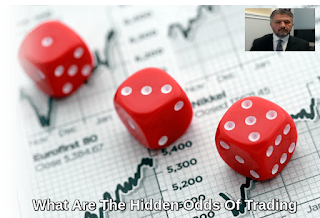What Are The Hidden Odds Of Trading
This system works, it's called card counting and others have used it to win in blackjack also. By placing minimum bets on almost all the hands played they controlled their losses. When the cards left in the deck were in their favor they would place large bets and win most of the hands. During this streak of winning they would make up their losses and turn a profit. When a new stack of cards is brought out to the table they would leave and cash out because with the introduction of a new stack of cards the odds swing back in favor of the house.
If they had stayed for more hands they would have slowly chipped away at the winnings until it was gone. In trading the house doesn't exactly have odds but commissions and slippage amount to odds against you. If you are new to trading you are probably thinking that commission and slippage are not that big of a hurdle. Well, I tracked it one time in my account, at the time I was day trading. After six months I had lost more to commissions and slippage than I had lost on losing trades. Also keep this is mind I only traded on average 3 times per day and had a profit 66% of the time. During that six months I had only realized an increase of 5.5% in my account balance.
Now that would be fine if you are trading a million dollar account but I wasn't. At the time I tried to fix my system which ended in disaster because I began to over trade which resulted in more losing trades than winning trades. What I failed to realize was that my winning system did not need to be fixed my money management skills did. Later when I realized that money management was the problem I went back to my old system with a few changes to the money management rules that I follow and performed much better. If you really want to become a better trader focus on the money management side of your trading. The markets go up, down, and sideways you cannot control the market. We need to focus on the things we have control over and money management strategies are a good place to start.




Comments
Post a Comment